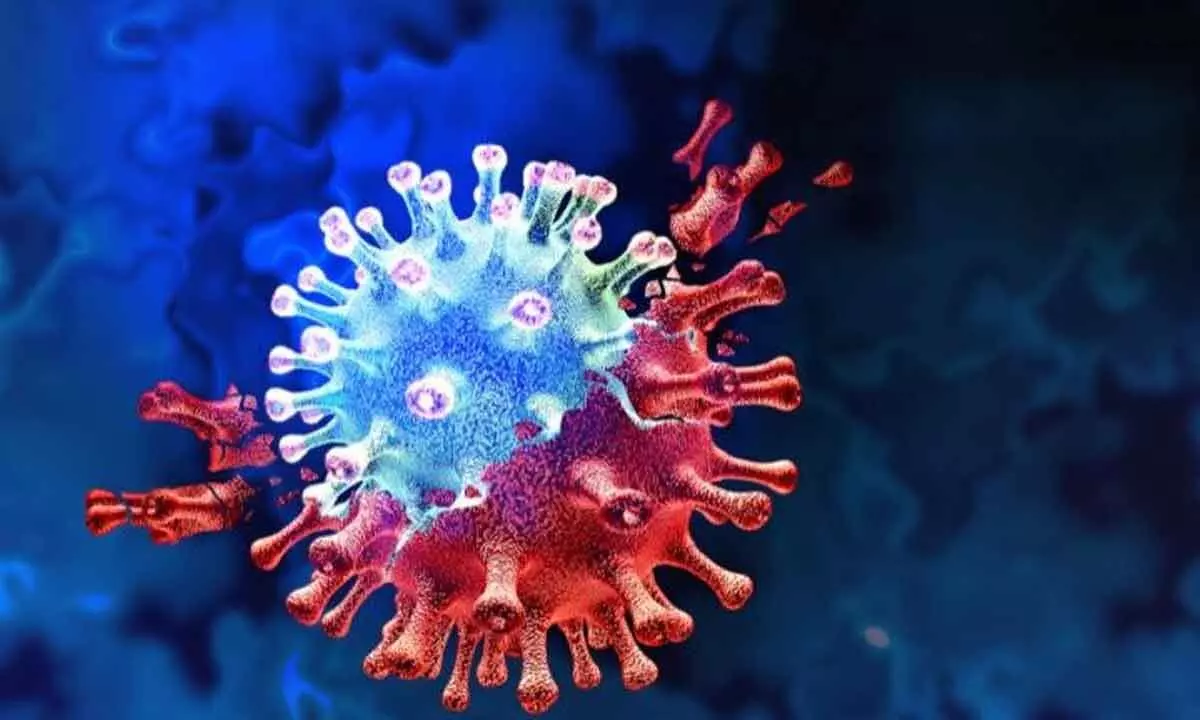Live
- Nagarkurnool: Burglary in a locked house
- Nadda asks voters to unseat BJD govt
- KCR Rally at Hanumakonda Chowrastha Road Show for Warangal Parliamentary Elections
- Yastika, Renuka Thakur star in India’s 44-run win over Bangladesh in T20I series opener
- Sai Sangeeta won gold medal for India in Dubai Asian Championship
- BSP's Akash Anand booked for hate speech against BJP
- Two die of sunstroke in Kerala, heat alert sounded in parts of state
- IPL 2024: Will Jacks, Kohli shock Gujarat, keep RCB's playoff hopes alive
- IPL 2024: 'Can't sit and speak from a box', Virat Kohli slams strike-rate critics
- ISL 2023-24: We have to give our everything, says FC Goa's Fernandes ahead of semis clash with Mumbai City
Just In
Time for Covid-appropriate behaviours


Worries that Covid is back have begun to concern people yet again, albeit at a low scale. At a time when the whole world was wracked by a series of...
Worries that Covid is back have begun to concern people yet again, albeit at a low scale. At a time when the whole world was wracked by a series of extreme weather events, racial conflicts and wars in a year, reckoned as the hottest the earth had ever endured, and is looking for good tidings ahead of New Year, slow yet steady resurgence of Covid is making everyone wary.
Overwhelming images of mass sufferings due to lockdowns, forced quarantines and isolations, overworked hospitals, paralysis of public life, upheaval of economies, financial hardships of households, and about 7 million deaths worldwide are flashing across the public mind, making people assess the Covid comeback implications. As per the Union Health Ministry, 382 coronavirus infections and three deaths were recorded in the last 24 hours. The surge in cases comes amid a rise in Covid sub-variant JN.1, first detected in Kerala. India on Friday recorded 640 fresh Covid infections while the number of active cases climbed to 2,997 from 2,669 the day before. The Centre has not pressed the panic button yet. Even as the caseload is rising, it is neither contemplating travel restrictions or mask mandates nor mandating compulsory third doses. Mandatory RT-PCR tests are ruled out at this stage for flyers to curb its spread. Instead, should the situation deteriorate, the government may go for targeted testing.
JN.1 variant has surfaced in many countries, including China, the United Kingdom, and the United States. Previously, it was classified and tracked as part of its parent BA.2.86 lineage, which itself is a descendant of the Omicron or B.1.1.529 variant of SARS-CoV-2, the virus causing COVID-19 disease. Omicron variants caused an alarming spike in Covid-19. In comparison with its parent lineage BA.2.86, JN.1 is said to have an additional mutation in its spike protein. It has lessened potential for severe illness compared to earlier variants. But, it has been classified by the WHO (World Health Organisation) as a variant of interest (VOI) due to “its rapidly increasing spread” around the globe. So far, it is not alarming. And the virus is not virulent.
The WHO, stressing that “no one is safe until everyone is safe,” has urged the world to ensure vaccine equity (everyone in the world has equal access to vaccines) as a global response to any COVID-19 pandemic resurgence. For India, the high density of population is a major challenge. Ineffective reporting of Covid cases, low public awareness and slow response systems are factors that could lead to the rapid spread of the virus. At this stage, exercising caution and allaying public apprehensions is very essential. Else, it will have a Domino effect on various spheres of public life, forcing them to grind to a halt. Governments, and the public, too, must not lower their guard. Even as Covid toll was going up to clock around 5,33,300, governments strained themselves and rose to the occasion to arrest the dance of death. Over 220 crore doses of Covid vaccines were administered, indicating the effective rallying of systems and personnel. Now, they are better prepared.
Karnataka has mandated masks for people above 60, while Chandigarh administration made them must in public places. At this stage, either spread of infections or intensity of symptoms is not so concerning as to cause panic, say officials. Nevertheless, there is a case for caution and precautions, more so by vulnerable sections. Measures such as keeping vigil, spreading awareness, promoting public hygiene and use of masks had better be taken up. That’s how we should take the fight head-on.

© 2024 Hyderabad Media House Limited/The Hans India. All rights reserved. Powered by hocalwire.com






